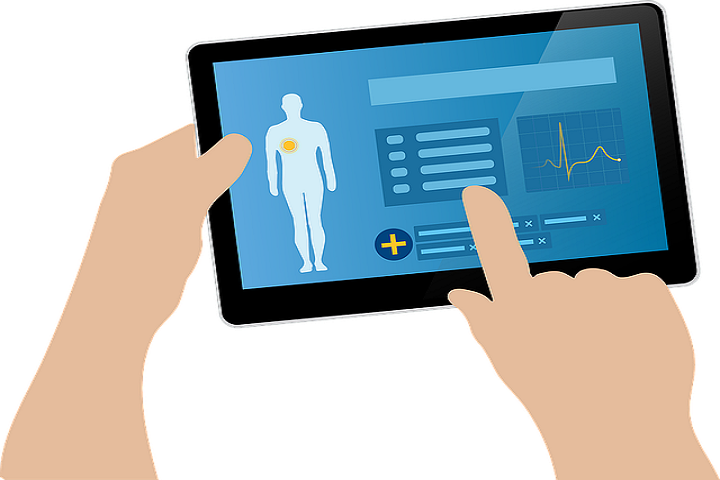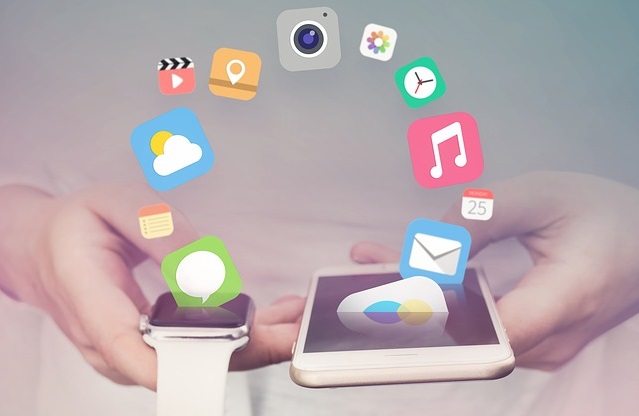Health & Fitness
The Best Mental Health Apps
Let’s take a closer look at five of the most popular and helpful mental health apps available. The Best Mental Health Apps.

Mental health awareness is at an all-time high, especially with the COVID-19 pandemic causing many to experience a wide variety of life changes over the past year or so. With so many people struggling to maintain their mental health, it’s clear we can all use a mental boost.
The good news is there are so many things you can do to improve your mental health and return to the happy days we used to all take for granted. Eating a healthy and balanced diet, exercising regularly, being more mindful daily, and having a support group are just some of them.
Of course, it wouldn’t be right if we failed to mention the many ways technology is helping during these rough and difficult times. We live in a world dominated by technology, and while it does a lot to damage our mental health, there are apps out there designed to help, believe it or not.
So, what are the best mental health apps of 2021?
Mental health apps are helping to transition the traditional face-to-face assistance we’re used to receiving for mental health services into a more digital-based platform for all to use and enjoy. There are a wide variety of mental health apps designed to help in various ways.
Some mental health apps focus on meditation, some are designed to help you sleep better, help connect you with trusted and experienced therapists, and others are more geared towards helping you stay on track with the goals you set for yourself. Trust us; there’s a lot!
Let’s take a closer look at five of the most popular and helpful mental health apps available in 2021:
Table of Contents
1. Headspace
Headspace is a top-rated mental health app originally released back in 2012 but received regular updates today. It was designed to help people learn how to meditate; meditation was more accessible to anyone interested in the hobby.

It utilizes audio sessions to provide users with guided meditation, a form of meditation that ‘guides’ you through the process. It’s more geared toward users who have never meditated before and have zero experience with it, but experts can also enjoy it.
Through reminder notifications and easy setups, the Headspace app ensures you can meditate whenever and wherever — while also making sure you do it regularly and often. It certainly oversimplifies the process but gives users a wide range of audio sessions to choose from.
2. Talkspace
With in-person therapy becoming less desirable in the age of the COVID-19 pandemic, mental health apps like Talkspace are thriving in 2021 — something that will continue to grow shortly. It was designed to make mental health therapy with professionals more accessible.
Talkspace was originally released in 2014 but is regularly updated on all platforms. It’s an online therapy app that connects you with real-live professionals ready to help you through your mental health issues. It gives you several therapists to choose from based on your initial preferences.
Once you select a therapist with which you feel comfortable, you can chat with them through audio, video, or text. They respond rather quickly, but you can also request live sessions with the therapist if you need immediate help. It’s easy to use, and they even accept insurance.
3. Calm
If you’ve been on the hunt for a mental health app recently, chances are you’ve stumbled across the Calm app. It has become one of the most downloaded mental health apps over the past few years and only continues to grow. It focuses on providing meditation and sleep assistance.
The Calm app was originally released in 2014 but still receives regular updates to this day — which likely won’t stop anytime soon due to its popularity. Topics for guided meditation include anxiety, stress, sleep, focus, relationships, habits, happiness, self-esteem, gratitude, and more.
With audio sessions created by true professionals, users can enjoy guided meditation in increments of 3, 5, 10, 15, 20, or 25 minutes. The most popular session is known as ‘The Daily Calm,’ a 10-minute session that explores a new theme every day of the week.

4. Moodfit
Although it’s not as popular as some other mental health apps on this list, Moodfit continues to grow and is still one of the most beneficial mental health apps available today. It largely focuses on improving your mood and indulging in self-care practices daily.
Moodfit was originally released in 2017 and gave users a wide range of tools and insights to improve their mental health and fitness over time. It provides daily goals and self-care techniques to follow each day, a mood journal, a gratitude journal, mindfulness meditation, and much more.
In addition to that, they also provide quality cognitive behavioral therapy, breathing exercises, help you with your sleeping patterns, ways to improve therapy, a deeper understanding of mood-related medications, and a wide range of summary reports to track your mental health.
5. BetterHelp
Anyone interested in online counseling or online therapy needs to consider the BetterHelp app. It’s a mental health app that focuses on matching individuals with local therapists that are readily available to help you lead a healthier, happier, and more fulfilling life daily.
The BetterHelp app was originally released in 2014, but the wonderful creators of the app are constantly updating the app to ensure it satisfies its users. They operate under the slogan, “You deserve to be happy. We are here to help make it happen,” and that’s exactly what they do.
It works by first filling out a questionnaire so they can learn a little more about you, your lifestyle, some of the obstacles you face in daily life, and what you hope to accomplish when it comes to mental health. Once they match you with a therapist, you can talk through text, video, or audio.
A Healthy Mind Means More Than You Think
There’s nothing more important in this world than maintaining a healthy body, mind, and soul — especially in the world we live in today. With the COVID-19 pandemic changing the way we live daily, it’s time we start changing the way we think about mental health, as well.
With the mental health apps, we listed above, you can start to take better control of your mental health from a wide variety of different angles. Whether you choose Headspace, Talkspace, Calm, Moodfit, or BetterHelp, it’s nice to know that there’s digital help readily available to you.
For more information regarding the technology space and all the new and exciting updates in the community, follow our TwinzTech blog. We provide a wide range of interesting reads for you to enjoy!
-

 Instagram4 years ago
Instagram4 years agoBuy IG likes and buy organic Instagram followers: where to buy them and how?
-

 Instagram4 years ago
Instagram4 years ago100% Genuine Instagram Followers & Likes with Guaranteed Tool
-

 Business5 years ago
Business5 years ago7 Must Have Digital Marketing Tools For Your Small Businesses
-

 Instagram4 years ago
Instagram4 years agoInstagram Followers And Likes – Online Social Media Platform















